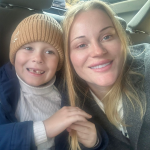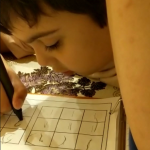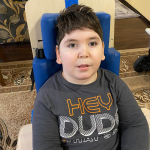How to Improve Relationships Between Autistic Children and Their Siblings
When there are two or more children in a family, and one of them has an autism spectrum disorder to some degree, parents inevitably face the question: how to build healthy relationships between the children? Children with autism may perceive their siblings in different ways. For some, brothers and sisters are sources of support, understanding, and friendship. For others, they can be a source of stress, especially if interactions don’t meet their expectations or ways of perceiving the world.
Many autistic children struggle with social interactions, which can make communication with siblings difficult. Some may not understand nonverbal cues like facial expressions and gestures, and may take phrases and jokes literally. This can lead to misunderstandings and conflicts.
How to Help Autistic Children Improve Relationships with Their Siblings
- Discuss Each Child’s Characteristics: Talk to the siblings about what autism is and what specific traits their sibling may have. Help them understand how they can support each other.
• Find Common Interests: Discover shared hobbies or activities that can bring the children together. These can be games, sports, or creative activities.
• Respect Each Child’s Personal Space: Explain the importance of respecting the autistic child’s personal space. Teach siblings how to approach and when it’s better to give them some time alone.
• Encourage Positive Interaction: Promote positive interactions. For example, you can organize joint games where everyone can participate and enjoy.
• Teach Empathy to All Children: Help the children develop empathy. Discuss emotions and teach them to notice how their actions affect others.
• Gradual Involvement: Start with short interactions and gradually increase their length and complexity.
• Support and Assistance: Involve older children in helping with daily tasks, as this can strengthen bonds and provide the autistic child with a sense of security.
What to Base the Interaction Between Children On
- Social Interaction: Many autistic children have difficulty with social interactions, which can complicate communication with their siblings. Some may not understand nonverbal signals, such as facial expressions and gestures, and might interpret phrases and jokes literally. This can lead to misunderstandings and conflicts.
- Emotional Connection: Autistic children may have varying levels of empathy. Some may be highly sensitive to the emotions of others, while others might struggle to recognize emotions or express their own feelings. This can affect how they perceive and react to their siblings’ emotions.
- Need for Routine: Many autistic children prefer predictability and routine, which can impact their relationships with siblings. Changes in schedule or activities can cause stress, making it difficult for them to enjoy shared time. It’s important to consider these needs and find ways of engaging in activities that work for all children.
Stem Cell Therapy for Autism: From One Child to Another
The relationships between autistic children and their siblings can be complex yet profound. Understanding and accepting each child’s unique characteristics, open communication, and a willingness to adapt to each other’s needs will help build strong bonds. Every neurotypical child can contribute to their sibling’s development.
Innovative autism correction using stem cell therapy allows for cell transplantation between full-blooded siblings or using the autistic child’s own bone marrow cells. As a result of this procedure, within a year, significant changes in the child’s psycho-emotional behavior are observed: speech is activated, vocabulary increases, stimming decreases, sleep improves, tolerance for stress is enhanced, and more.
Learn more about the stem cell transplant procedure and its potential for your child from the specialists at the Mardaleishvili Medical Center!
Autism Treatment Center Videos
Autism treatment with own stem cells
Cord blood association congress
International Quality Crown
Autism Treatment Reviews
Autism treatment with own stem cells
The story of Alessandro (6 years old)
Autism Patient Testimonial - Stem Cell Treatment
Clients Testimonials

Feedback from Igor, David’s father (12 years old) Read More

Feedback from Olga, Fedya’s mother Read More

Feedback from Natalia, Radomir’s mother (15 years old) Read More

Feedback from Esther, Samuel’s mother (8 years old) Read More

Feedback from Abibe, Selim’s mother (7 years old) Read More












